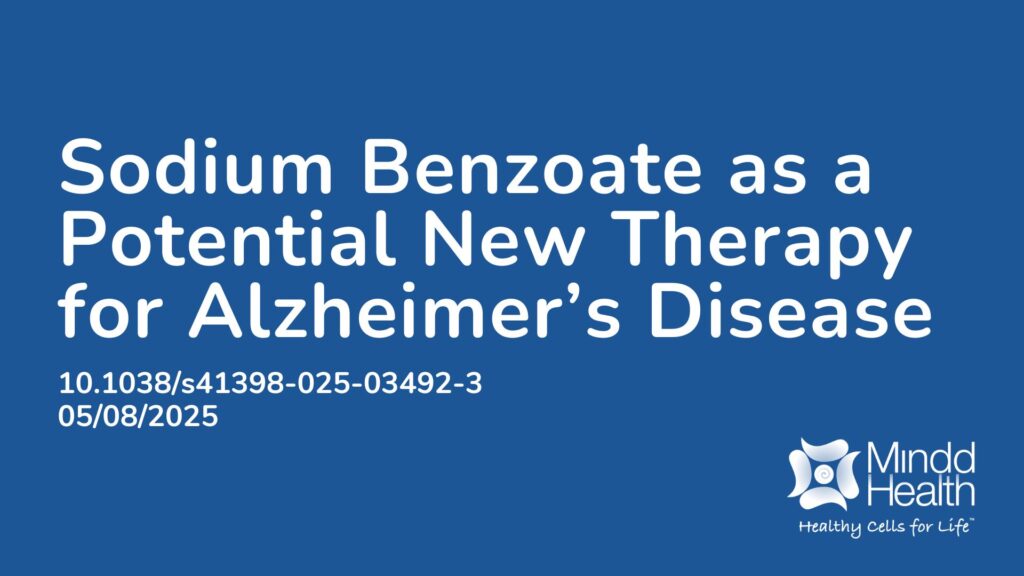Summary:
Alzheimer’s disease (AD) is thought to be driven by the accumulation of β-amyloid (Aβ) peptides. Recent therapies that target Aβ have shown clinical benefit but remain limited by high cost, treatment adherence challenges, and safety risks, including cerebral edema and hemorrhage. Safer and more practical treatments are therefore needed. Sodium benzoate, a common food additive with anti-inflammatory and neuroprotective properties, has shown promise as an alternative. In animal models of AD, it reduced Aβ burden and improved cognition. Clinical trials have reported that 24 weeks of oral sodium benzoate improved cognitive outcomes in patients with mild AD or mild cognitive impairment, with a safety profile similar to placebo. This study was a secondary analysis that examined whether sodium benzoate reduced plasma Aβ levels and whether baseline Aβ could predict treatment response. Data were drawn from a double-blind clinical trial of 149 patients with mild AD randomized to placebo or sodium benzoate. Cognitive function and plasma Aβ were measured before and after treatment. Patients receiving higher doses of sodium benzoate showed reductions in Aβ compared with placebo. In addition, higher baseline Aβ was associated with greater cognitive improvement after treatment. These findings suggest that sodium benzoate may lower Aβ and enhance cognition in mild AD, with advantages in safety and ease of use compared with current therapies.
Abstract:
With the recent approval of anti-amyloid beta (Aβ) monoclonal antibody infusion therapies for Alzheimer’s disease (AD), more feasible and safter Aβ-reducing approaches are anticipated. Previous studies showed that 750-mg/day or 1000-mg/day (but not 500-mg/day) sodium benzoate treatment improved cognitive function in AD patients with excellent safety and that benzoate decreased Aβ burden in an animal AD model. The current study aimed to explore whether oral sodium benzoate was able to reduce Aβ peptides in AD patients and whether Aβ before treatment was correlated with cognitive improvement after treatment. This secondary analysis used data from a double-blind trial, in which 149 patients with mild AD were randomized to receive oral placebo or one of three benzoate doses (500, 750, or 1000 mg/day). Cognitive function and plasma Aβ 1–40 and Aβ 1–42 levels were measured before and after treatment. When compared to placebo, benzoate therapy at effective doses (750 and 1000 mg/day) reduced Aβ 1–40 and the sum of both Aβ peptides (Aβ 1–40 plus Aβ 1–42) in AD patients. Moreover, higher Aβ 1–42 levels at baseline were associated with better cognitive improvements after benzoate treatment at effective doses in the patients. The findings suggest that sodium benzoate therapy can reduce Aβ 1–40 and the total Aβ in AD patients and higher Aβ 1–42 levels before treatment predict better cognitive improvements. Due to its superior safety and convenient administration, sodium benzoate has the potential to be a novel Aβ-reducing therapy for AD treatment.
Article Publication Date: 05/08/2025
DOI: 10.1038/s41398-025-03492-3



